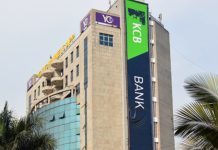Peter Munga, the revered founding chairman of Equity Bank and one of Kenya’s most respected business titans, is now facing one of the biggest financial storms of his career. At stake? A jaw-dropping Ksh 510 million and, perhaps more importantly, a lesson for every investor who dares to believe in a turnaround story.
A Legacy Built on Banking
Peter Munga is no stranger to risk. After all, he helped transform Equity Bank from a struggling building society into one of Africa’s most powerful financial institutions.
So, when he backed the acquisition and rebranding of Spire Bank (formerly Equatorial Commercial Bank), many saw it as another bold masterstroke, an attempt to breathe life into a tier-three bank with the same ambition that once drove Equity’s meteoric rise.
But this time, the magic didn’t work.
What Went Wrong?
Spire Bank’s decline wasn’t sudden; it was slow, painful, and deeply telling.
Despite multiple attempts at reviving it through capital injections, leadership changes, and strategic overhauls, the bank remained plagued by non-performing loans, regulatory pressure, and liquidity constraints.
Munga’s Ksh 510 million was part of a broader recapitalization effort. But as the bank’s health worsened, so did the value of investor equity.
“It’s a tough pill to swallow,” said one financial analyst. “This wasn’t just about money. It was about belief in a vision that didn’t materialize.”
The Ironic Twist
Equity Group Holdings, the institution Munga helped build, would later acquire Spire Bank in a twist worthy of a business school case study. But the transaction was clear-cut: Equity would only take over the bank’s assets and select liabilities. Equity stakes? Wiped out.
That meant minority shareholders like Munga bore the full brunt of the financial loss.
What This Means for Kenya’s Financial Landscape
While the move was seen as necessary to protect depositors and stabilize the banking sector, it also highlighted the fragile nature of investor returns in struggling financial institutions.
Munga’s loss isn’t just personal, it’s symbolic.
It reflects how quickly fortunes can change in the financial sector, even for those who helped shape it.
Lessons for Entrepreneurs & Investors
Peter Munga’s Spire Bank gamble offers more than just headlines. It’s a cautionary tale with deep insights:
- Risk Management Is Non-Negotiable
Even visionary leadership can’t outrun a failing business model. Always have an exit strategy.
- Due Diligence Over Legacy
Just because a founder backs it doesn’t mean it’s bulletproof.
- Regulation Can Reshape Everything
The structure of bank acquisitions can protect the system, but devastate equity investors.
- Turnarounds Need More Than Passion
Capital and leadership help, but market conditions, trust, and timing are critical.
A Setback or a Setup?
For now, Peter Munga stands to lose over half a billion shillings, a blow by any measure.
But if there’s one thing history has taught us about Kenya’s greatest business minds, it’s that resilience runs deep. This may be a setback or the start of a setup for a remarkable comeback.
“Even giants stumble. The question is, do they rise again?”
Subscribe to the blog for more deep dives into Kenya’s biggest financial stories and investment lessons.







